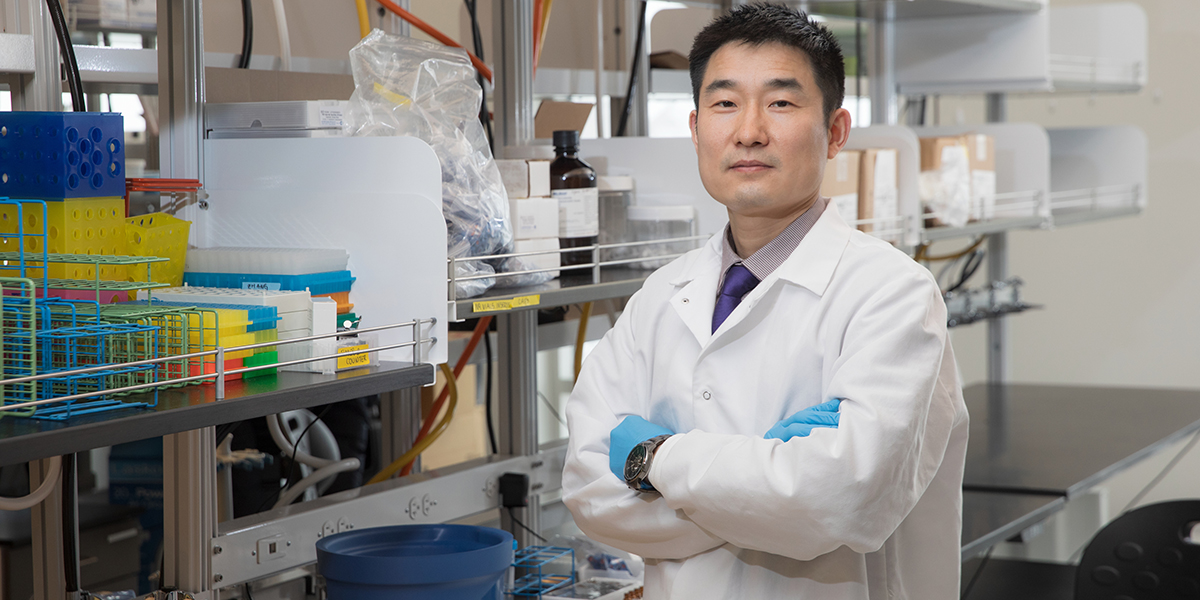Tao Zhang joins pharmaceutical sciences faculty

The newest member of the Department of Pharmaceutical Sciences Tao Zhang joined the faculty as an assistant professor in January, after six years on the faculty of Husson University School of Pharmacy in Maine. Prior to entering the world of academia, he worked in the Drug Metabolism and Pharmacokinetics Department at Novartis Pharmaceuticals Corporation in New Jersey. Zhang was attracted to the Binghamton University School of Pharmacy and Pharmaceutical Sciences, in part, because of the diversity of the faculty here. “There are outstanding scientists with academia or both academia and industry experience,” he said. “The possibility of collaboration interested me.”
Zhang received his bachelor’s degree in biotechnology from Zhejiang University, China; his master’s degree in environmental science from Hong Kong University of Science and Technology, Hong Kong, China; and his PhD in pharmaceutical sciences from the University of Michigan.
His current research is focusing on determining the safety use of drugs during lactation. “I work first with cells in the lab, then use computational modeling to run the simulation,” Zhang said. “I am hoping to be able to better predict drug transfer into the breast milk and determine whether it will be safe for the infant.”
His work on pharmacokinetic modeling and simulation can be a natural fit for collaboration on drug discovery and safety assessment with other Binghamton faculty both within and outside of the School of Pharmacy.
In the classroom, he teaches pharmaceutics and pharmacokinetics-related topics to first-year and second-year students. The courses help students expand their learning about properties of dosage forms and drug delivery systems typically employed to administer medications.
Zhang’s research has been supported by the U.S. Food and Drug Administration (FDA), U.S. Department of Agriculture (USDA) and other foundations. He is currently the principal investigator on two grants:
- A $584,639 FDA grant titled Predicting the Transfer of Breast Cancer Resistant Protein (BCRP) Substrates into Human Milk Using In Vitro to In Vivo Extrapolation (IVIVE)
- A $264,880 FDA grant titled In Vitro Cell Permeation Model and Drug Classification for the Prediction of Drug Transfer into Human Milk
He has published over 40 research articles in peer-reviewed journals with more than 3,000 citations and received the Husson University Distinguished Research Award in 2020.
